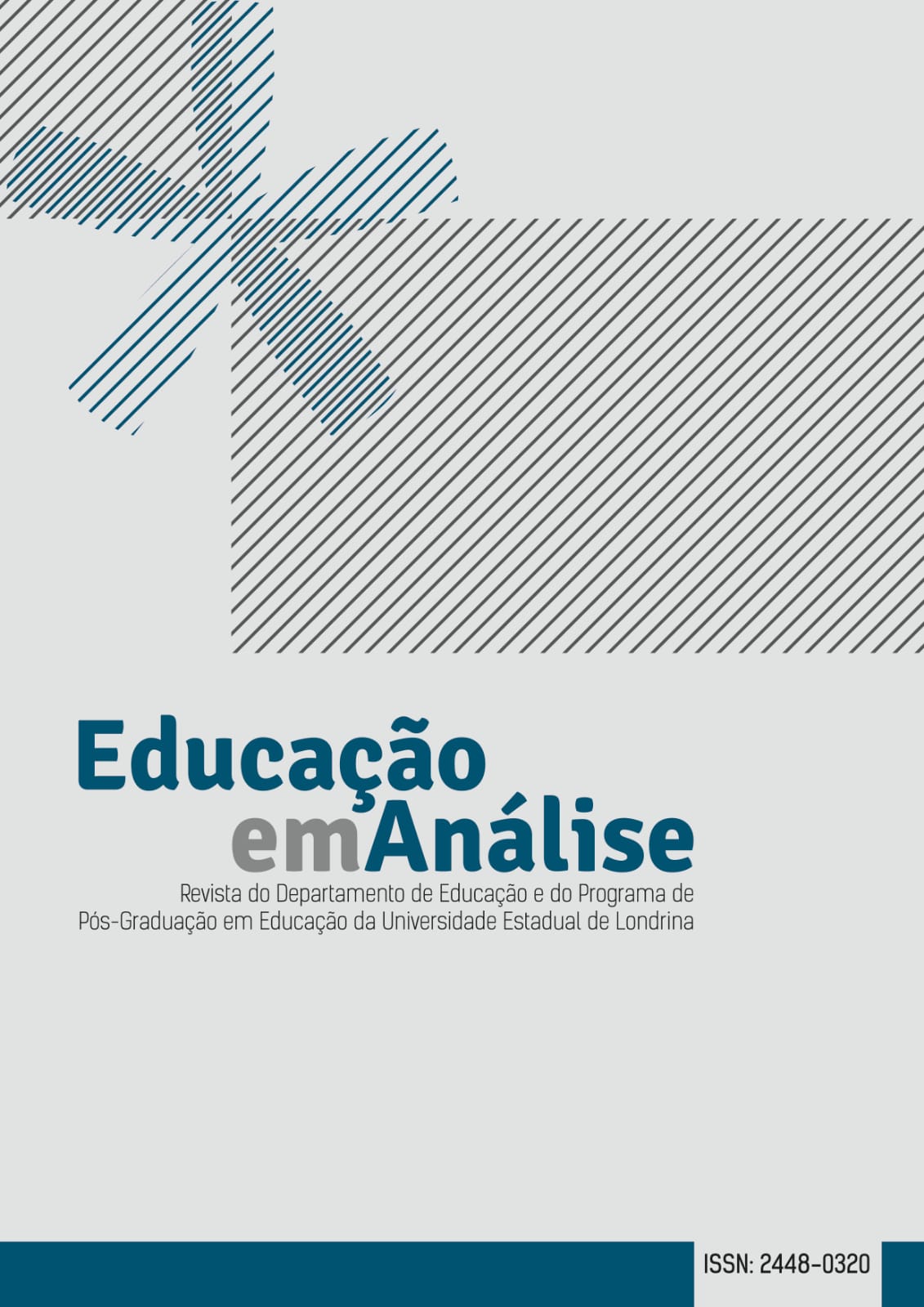The Pikler approach in Brazil and its contributions to pedagogical practice in early Childhood Education
DOI:
https://doi.org/10.5433/1984-7939.2023v8n2p465Keywords:
Emmi Pikler, Child education, Pikler ApproachAbstract
The object of this theoretical essay is the Pikler Approach. We started from the guiding question: How does the Pikler Approach contribute to the organization of pedagogical practice with young children in early childhood education? The objective was to understand the emergence of the approach in Brazil and its contributions to the pedagogical practice in early childhood education. To do so, the methodology started from readings and deepening in the discussions present in the texts by Appell and David (2021); Falk (2021, 2022); Kálló (2021a, 2021b); Kálló and Balog (2021); Nabinger (2018); Rede Pikler Brasil (2022); Soares (2020); Tardos and Szanto (2021); Tardos (2022). The data revealed that the Pikler Approach presents important indicators to think about the pedagogical practice for and with children in early childhood education, from the organization of space, respect for the specificities of young children, the importance of adult observation, as well as the interaction of children with their peers and adults.
Downloads
References
APPELL, Geneviève; DAVID, Myriam. Maternagem insólita. São Paulo: Omnisciência, 2021.
BLANK, Danilo. Andador: perigoso e desnecessário. Sociedade Brasileira de Pediatria, Rio de Janeiro, 7 nov. 2014. Disponível em: https://www.sbp.com.br/imprensa/detalhe/nid/andador-perigoso-e-desnecessario/. Acesso em: 27 jan. 2022.
FALK, Judit (org.). Educar os três primeiros anos: a experiência Pikler - Lóczy. 3. ed. São Carlos: Pedro & João Editores, 2021.
FALK, Judit (org.). Abordagem Pikler: educação infantil. 3. ed. São Paulo: Omnisciência, 2022.
KÁLLÓ, Éva; BALOG, Györgyi (org.). As origens do brincar livre. 2. ed. São Paulo: Omnisciência, 2021.
KÁLLÓ, Éva. Colecionando. In: KÁLLÓ, Éva; BALOG, Györgyi (org.). As origens do brincar livre. 2. ed. São Paulo: Omnisciência, 2021a. p. 41-47.
KÁLLÓ, Éva. Maneiras típicas de manipulação e brinquedos apropriados durante o primeiro ano. In: KÁLLÓ, Éva; BALOG, Györgyi (org.). As origens do brincar livre. 2. ed. São Paulo: Omnisciência, 2021b. p. 20-40.
NABINGER, Sylvia. A chegada das ideias de Emmi Pikler no Brasil. In: FREITAS, Anita Viudes; PELIZON, Maria Helena; CHAVES, Rosa Silvia Lopes (org.). Olhares em diálogo na educação infantil: aproximações com a abordagem de Emmi Pikler. Porto Alegre: Sá Editora, 2018. p. 11-16.
REDE PIKLER BRASIL. Home. Porto Alegre: Rede Pikler Brasil, 2022. Disponível em: https://pikler.com.br/. Acesso em: 27 jan. 2022.
SOARES, Suzana Macedo. Vínculo, movimento e autonomia: educação até 3 anos. 2. ed. São Paulo: Omnisciência, 2020.
TARDOS, Anna; SZANTO, Agnés. O que é autonomia na primeira infância? In: FALK, Judit (org.). Educar os três primeiros anos: a experiência Pikler - Lóczy. 3. ed. São Carlos: Pedro & João Editores, 2021. p. 45-57.
TARDOS, Anna. Autonomia e/ou dependência. In: FALK, Judit (org.). Abordagem Pikler: educação infantil. 3. ed. São Paulo: Omnisciência, 2022. p. 56-67.
Downloads
Published
How to Cite
Issue
Section
License
Copyright (c) 2023 Débora Fontana Borges, Cassiana Magalhães

This work is licensed under a Creative Commons Attribution-NonCommercial 4.0 International License.
The journal reserves the right to make normative, orthographic and grammatical changes in the originals, with the aim of maintaining the cultured standard of the language and the credibility of the vehicle. It will, however, respect the authors' writing style. Alterations, corrections, or suggestions of a conceptual nature will be sent to the authors when necessary. In these cases, the articles, after being adequate, should be submitted to a new appreciation.









